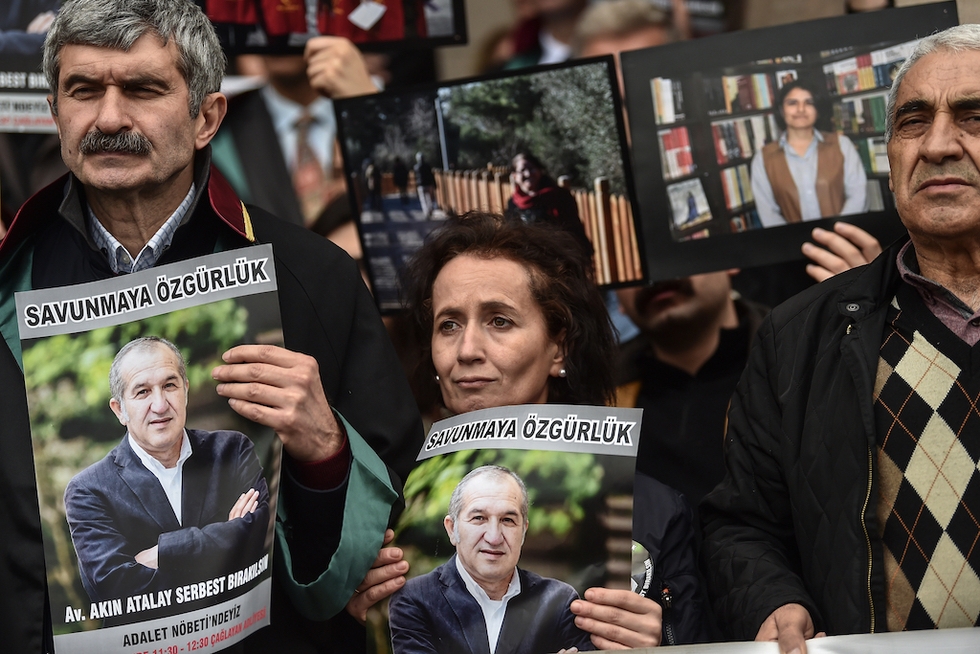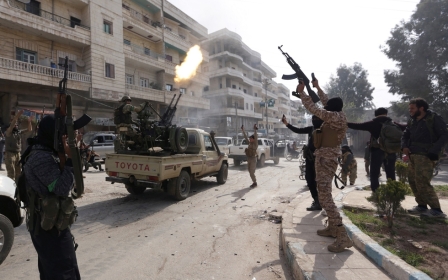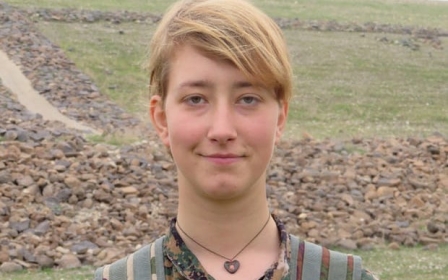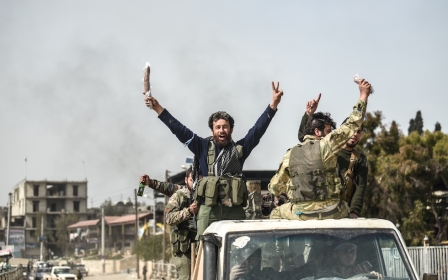UN slams rights abuses against 'hundreds of thousands' in Turkey

The protracted state of emergency in Turkey has caused serious human rights abuses against "hundreds of thousands of people", including killings, torture and arbitrary detention, the UN warned on Tuesday.
A state of emergency imposed in Turkey following the attempted overthrow of President Recep Tayyip Erdogan in July 2016, and repeatedly extended since then, has had dramatic consequences, the UN rights office said in a report published on Tuesday.
The report, which covers all of 2017, cautioned that the extraordinary powers handed to the authorities following the failed coup attempt had caused "a continued erosion of the rule of law and deterioration of the human rights situation".
"Routine extensions of the state of emergency in Turkey have led to profound human rights violations against hundreds of thousands of people," it said, warning that the use of emergency powers appeared to be meant "to stifle any form of criticism or dissent vis-a-vis the government".
One of the most alarming findings of the report is how Turkish authorities reportedly detained some 100 women who were pregnant or had just given birth, mostly on the grounds that they were 'associates' of their husbands, who are suspected of being connected to terrorist organisations
- Zeid Ra'ad Al Hussein, UN Human Rights Council
UN rights chief Zeid Ra'ad Al Hussein described the findings as "alarming" and "outrageous".
"The numbers are just staggering: nearly 160,000 people arrested during an 18-month state of emergency," he said in a statement.
In addition, he pointed to the "152,000 civil servants dismissed, many totally arbitrarily, teachers, judges and lawyers dismissed or prosecuted, journalists arrested, media outlets shut down and websites blocked.
"Clearly the successive states of emergency declared in Turkey have been used to severely and arbitrarily curtail the human rights of a very large number of people," he said.
In response, Turkey condemned the report as based on "distorted, biased and false information".
Electric shocks, waterboarding
The report also found that some 300 journalists had been arrested on grounds that their publications contained "apologist sentiments regarding terrorism" or similar offences.
At the same time, it said 100,000 websites were reportedly blocked in Turkey last year, including many pro-Kurdish websites and satellite television channels.
The report also documented the use of torture and other ill-treatment in custody, listing severe beatings, threats of sexual assault and actual sexual assault, electric shocks and waterboarding.
"One of the most alarming findings of the report," Zeid said, "is how Turkish authorities reportedly detained some 100 women who were pregnant or had just given birth, mostly on the grounds that they were 'associates' of their husbands, who are suspected of being connected to terrorist organisations."
"Some were detained with their children and others violently separated from them. This is simply outrageous, utterly cruel and surely cannot have anything whatsoever to do with making the country safer," he said.
The report cited the April 2017 referendum that extended Erdogan's executive powers as "seriously problematic", pointing out that this had led to an interference with the work of the judiciary and curtailment of parliamentary oversight over the executive branch.
The rights office also pointed out that 22 emergency decrees were promulgated by the end of 2017, with two more since then, often "regulating matters unrelated to the state of emergency and used to limit various legitimate activities by civil society actors".
This, the report cautioned, fosters "impunity", by handing immunity to authorities acting within the framework of the decrees.
Court charges Turkey
The European Court of Human Rights added to the round of criticism on Tuesday, condemning Turkey over the detention of two journalists, citing violations of their rights to liberty, security and freedom of expression.
The journalists, Mehmet Altan and Sahin Alpay, were among those arrested in the wake of the failed July 2016 coup attempt against President Recep Tayyip Erdogan.
The court ordered Turkey to pay each man 21,500 euros ($26,500).
"The court found in particular that Mr Alpay's continued pre-trial detention... could not be regarded as 'lawful' and 'in accordance with a procedure prescribed by law'," it said in a statement.
Alpay was released last week, though a court ruled he must remain in his house and is forbidden from leaving Turkey, state news agency Anadolu reported.
Altan was handed a life sentence in February on charges of links to the group blamed for the failed coup, along with his brother Ahmet, also a writer, and veteran journalist Nazli Ilicak.
The European court said his detention, "following his expression of his opinions, constituted a severe measure that could not be regarded as a necessary and proportionate interference in a democratic society".
The report urged Turkey to "promptly end the state of emergency and restore the normal functioning of institutions and the rule of law".
Writing in the New York Times in late February, Ahmet Altan expressed his fears that he would never again see the sky "unframed by the walls of a courtyard".
"We will spend the rest of our lives alone in a cell that is three metres long and three metres wide," he wrote. "We will be taken out to see the sunlight for one hour a day.
"We will never be pardoned and we will die in a prison cell."
New MEE newsletter: Jerusalem Dispatch
Sign up to get the latest insights and analysis on Israel-Palestine, alongside Turkey Unpacked and other MEE newsletters
Middle East Eye delivers independent and unrivalled coverage and analysis of the Middle East, North Africa and beyond. To learn more about republishing this content and the associated fees, please fill out this form. More about MEE can be found here.





